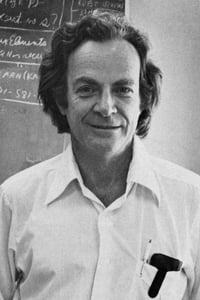Take the World From Another Point of View
Genres
Documentary
OverView
In 1973 Yorkshire public television made a short film of the Nobel laureate while he was there. The resulting film, Take the World from Another Point of View, was broadcast in America as part of the PBS Nova series. The documentary features a fascinating interview, but what sets it apart from other films on Feynman is the inclusion of a lively conversation he had with the eminent British astrophysicist Fred Hoyle.
Others
Budget
$--
Revenue
$--
Status
Released
Original Language
English
Runtime
37 mins
Rating
8.5/10
Release Date
01 January 1973
Country
United Kingdom


